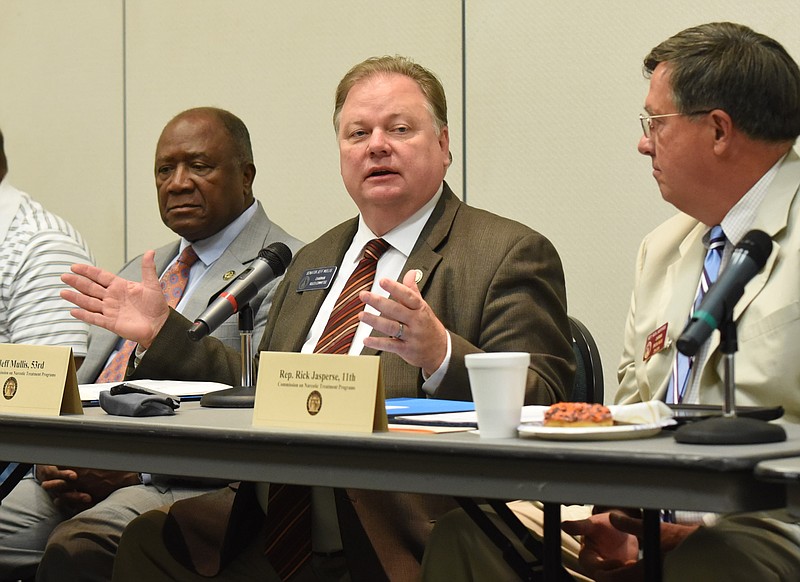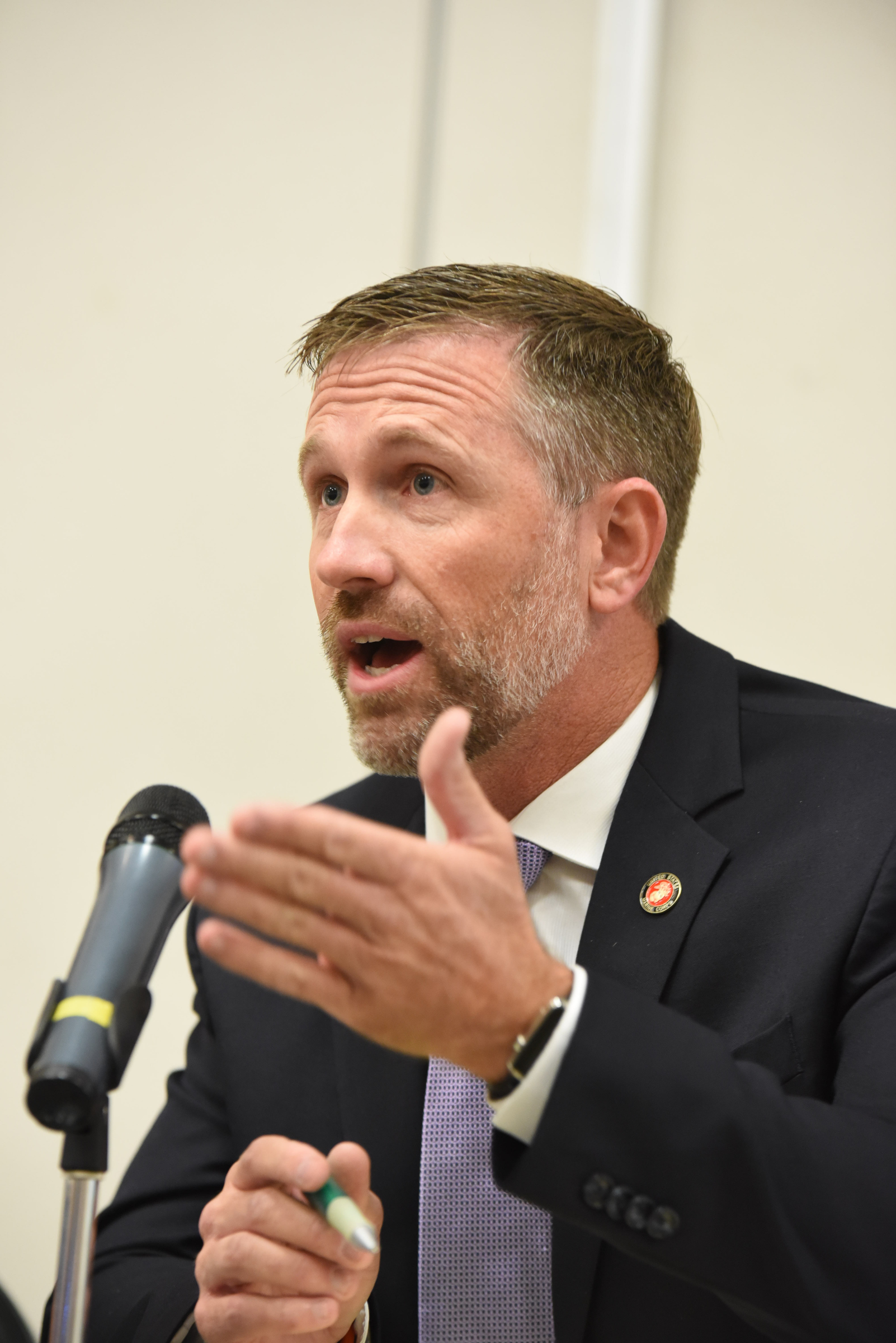A Georgia bill adding more regulations to drug treatment centers that dispense medication passed a House committee Tuesday afternoon.
The Narcotic Treatment Programs Enforcement Act, sponsored by State Sen. Jeff Mullis, would make opening a new clinic more difficult. Thus far, prominent members of the Opioid Treatment Providers of Georgia support the regulations. On Tuesday, the Georgia House Health & Human Services Committee voted to recommend the bill.
Narcotic treatment programs provide medications like methadone and Suboxone to addicts of pain pills and heroin. The medications are supposed to give patients low doses of opioids, which allow them to function throughout the day. Addiction experts say quitting these drugs cold turkey can cause illnesses, making it impossible to work or simply function in day-to-day life.
Directors of these programs are supposed to combine the medication with counseling sessions and classes about addiction, treating the clients holistically. And with time, they are supposed to take lower doses of the medications.
But some politicians and health care experts believe there are not enough regulations in place, allowing bad actors to slip past. In particular, some clinics offer the first month's worth of medication for $1 per day. Promotions can lead to an influx of patients - but not necessarily long-term treatment or proper counseling because the clinic is more interested in drawing people in than keeping clients.
"That doesn't necessitate quality treatment," Connell said. "As it was brought up before, medication alone, that addresses their dependency. It takes their withdrawals away. But addiction counseling and good provided recovery services, that's what allows people to find recovery."
At the request of Rep. Jodi Lott, R-Evans, the lawmakers will add a provision to the bill, specifically allowing discounted rates for pregnant women and those who can't afford treatment otherwise.
Mullis, R-Chickamauga, believes there are too many narcotic treatment centers in Georgia. According to the Substance Abuse and Mental Health Services Administration, there are 71 opioid treatment centers in the state. By comparison, Tennessee has 13 centers, and Alabama has 24.
But the number of clinics in each state across the country vary wildly, based on a patchwork of different regulations. Based on the total number of clinics in the United States, taken from the most recent figures on SAMHSA's website, the average state with a population like Georgia's would have about 46 clinics - still 35 percent lower than the current total in Georgia.
Because of the low availability in Tennessee, a cluster of four centers have cropped up in Fort Oglethorpe, Ringgold and Rossville, areas Mullis represents. Some local city and county commissioners, as well as law enforcement officers, have objected to the programs, believing they bring addicts to the community.
"We had people opening clinics here just to service other states and their needs," said Josh Mackey, a lobbyist for the Opioid Treatment Providers of Georgia. "We can't service the entire need of the state of Tennessee."
Mullis' bill also creates a one-month period when owners of new treatment clinics can apply for licenses, allowing them to practice. That time period needs to be limited, he said, because Department of Community Health inspectors are already spread too thin, meaning they need more time to inspect other clinics before handling applications.
The bill would also divide the state into regions and limit the number of clinics in a region to four. Applicants looking to open a treatment center will have to prove they have reached out to stakeholders, like police chiefs and local elected officials, for community input. Also, they will need to show there is a need, with data of overdoses in the area and the backlog of patients at every other clinic within a 75-mile radius.
Contact Staff Writer Tyler Jett at 423-757-6476 or tjett@timesfreepress.com. Follow him on Twitter @LetsJett.

